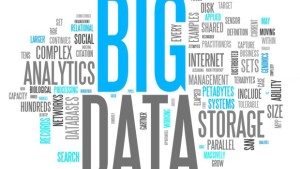The deal follows a number of other similar acquisitions in the sector. This past year, Spotify announced in March that it was purchasing Massachusetts-based music data firm The Echo Nest, while Apple purchased media analytics company Semetric, the company behind the Musicmetric music analytics platform, last January.
Record companies are increasingly turning to analytics as people listen to more and more music online. Social media and an abundance of new online platforms on which consumers can play music are opening up new gatways to scrape information which reveal a variety of factors that impact on their artist’s sales.
While they may not bring in the same profits that CDs once did, platforms like Spotify provide a far greater insight into listening habits. Whereas previously it was impossible to gather much information past the point of purchase, companies are now able to see how often a song is listened to, when, and by who, giving them the capabilities with which they can predict future hit records.
Analytics is also providing a boon in other areas. Musicmetric focuses on the social media side, garnering customer sentiment from Facebook to Twitter to gauge an artist’s popularity, allowing users to gauge which platform they are attracting the most buzz on so that they they can be marketed accordingly.
The drop off in revenue for record companies over recent years has been marked. Dogged by piracy and low margins, firms have been looking for another way to maximize their profits, and they are using the information for all aspects of the business, including ticket sales for live events – now one of the industry’s primary sources of revenue. According to a recent report, ticket sales rose from $1.5 billion in 1999, up to $4.6 billion in 2009, and analytics can provide greater insight into the planning of tours. Jay Z, for example, arranged his UK tour locations based on Spotify data.
Could we reach a stage where the X Factor panel is replaced with computers? It would likely improve ratings, but at the moment analytics are still simply a tool the industry can use to predict sales and help target marketing, rather than one which can discover talent. Though this may sound like it is a hindrance to the introduction of analytics, we are increasingly reaching the point whereby artists and their image are the focus ahead of the music itself, and building a relationship with fans – which is the primary benefit of analytics – is the goal.




